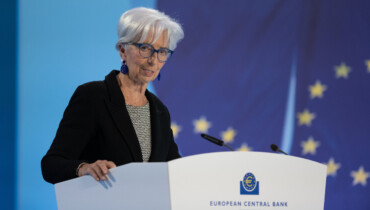Despite higher inflation and interest rates, demand for housing in Germany is expected to remain robust.


Despite higher inflation and interest rates, demand for housing in Germany is expected to remain robust.
At the annual meeting of central bankers in Jackson Hole Federal Reserve Chair, Jerome Powell, summed up the uncertain environment as “navigating by the stars in a cloudy sky”. This relates, among other things, to the uncertainty about the level of the neutral interest rate, the lagged effect of key-lending rate hikes on economic growth and inflation, and the drivers of inflation.
Currently, the most important indicators point to average global economic growth and falling inflation. The probability of an immediate recession has decreased significantly. But the risks in the medium term remain. Chief economist Gerhard Winzer explains which three scenarios are currently emerging in the blog post.

The stock markets are also usually a little quieter during the summer months. Many market participants take a break due to holidays and the general activity decreases. In any case, a look at some important charts indicates that no nasty surprises are to be expected during the holidays.
Can price stability, i.e. inflation of 2%, be achieved without a recession? The further decline in inflation in the US in June has raised expectations for this favourable scenario. However, a look in the rear-view mirror calls for caution. In the past, a central bank-induced decline in inflation has often been accompanied by a recession.
The global economy is proving to be increasingly robust against a number of headwinds. Due to the uncomfortably high level of inflation, the central banks are likely to stick to their tight interest rate policy for longer than expected.
The stock markets look back on a strong first half of the year. In addition to the already familiar factors of inflation and key interest rates, the trend topic of artificial intelligence (AI) came into focus. In this interview, fund manager Tamás Menyhárt looks back on the past six months and tells us what has to happen for 2023 to end as happily as the first half of the year did.

The feared recession has so far failed to materialise and inflation is also falling. Nevertheless, the risks remain on the downside. What could be in store for the markets in the second half of the year?

This week, the markets are eagerly awaiting the upcoming interest rate decisions. The Fed in the USA will make the first move today, Wednesday. For the first time in the current cycle, no increase in the key interest rate is expected. For tomorrow’s interest rate decision by the ECB, on the other hand, the market expects a further rate hike of 25 basis points.

Inflation data in Europe recently showed a surprisingly significant slowdown. The decline in energy prices in particular had a dampening effect. Read our latest blog post to find out about the current inflation in the individual EU countries.